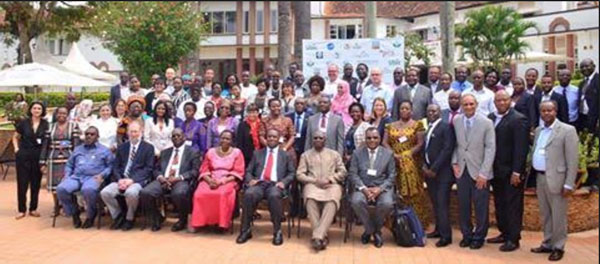
Some of the amendments that have been made in the Bill, according to Dr. Elioda includes clauses that focuses more on safety than facilitation of the technology, composition of the biosafety regulatory body, approvals of biotech crops and penalties.
Currently eight African countries including Kenya, Malawi, Nigeria, Ethiopia, Ghana, Nigeria and Swaziland are making advances in regulatory review and commercial approvals for a variety of biotech crops.
Only South Africa and Sudan have biotech laws and are growing biotech crops, which includes maize, soybean and cotton on the African continent.
Progress on biotech research in Africa
According to the latest ISAAA report 2017, a total of 13 countries, up from 11 in 2015, either planted, actively evaluated field trials or transitioned to grant approvals for the general release of various biotech crops across the continent.
Three countries transitioned from conducting experimental research or confined field trials to granting approvals for environmental release. These were: Kenya (maize and cotton); Malawi (cotton) and Nigeria (cotton).
Six countries conducted multi-location trials in preparation for general release approvals and includes Burkina Faso and Ghana (for cowpea), Ethiopia and Swaziland (cotton), Nigeria (cowpea and sorghum), and Uganda (banana and maize).
In addition, two countries recorded first time approach and new crop trials under the Water Efficient Maize for Africa project. Tanzania planted its first ever confined field trial of drought tolerant maize while Mozambique granted its first ever approval for a trial of a stacked trait, an insect resistant and drought tolerant maize.
Globally, growing of biotech crops rebounded last year from a decline the prior year led by increased sowings in Brazil and the United States.
The biotech crops were planted on a record 185.1 million hectares last year, up 3 % from the 179.7 hectares planted a year earlier. A total of 26 countries, including 19 developing and seven industrial countries, grew biotech crops.
Developing countries grew 54% of biotech crops, compared to 46% for industrial nations. In Africa only South Africa and Sudan grew biotech crops to 2.66 million hectares from 2.29 million hectares in 2015.
Mahaletchumy Arujanan, the executive director at the Malaysian Biotechnology Information Centre, said it is time for the African countries to ignore Europe and take its path to improve food security.
She said this is due to the changing weather patterns and evolution of pests and diseases and in areas that conventional breeding has failed to achieve the desired results.
She added that EU has approved more than 99 biotech crops for growing and imports millions of biotech products mainly from US but restricts African countries from doing so.
 The Independent Uganda: You get the Truth we Pay the Price
The Independent Uganda: You get the Truth we Pay the Price


